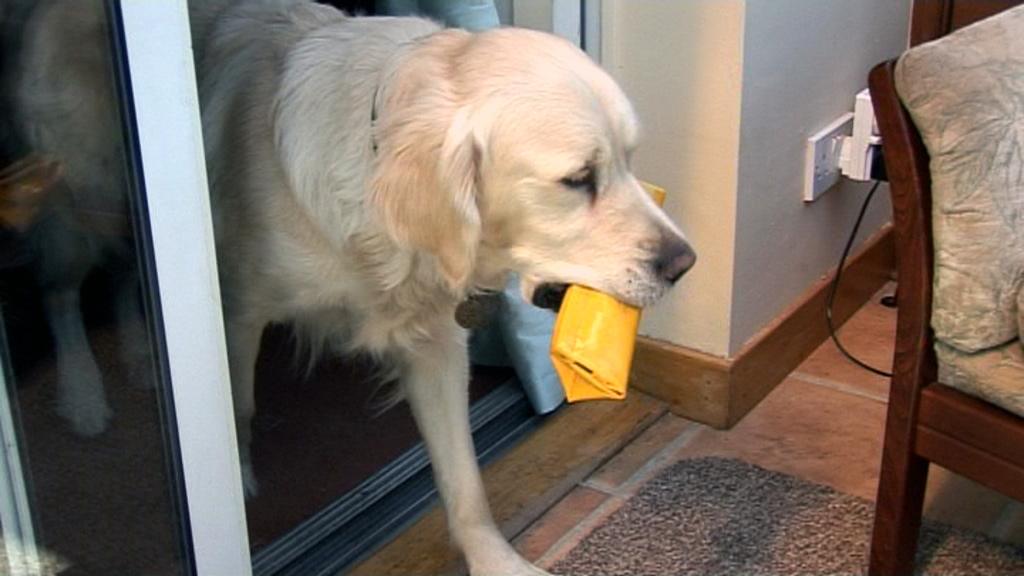NHS 'still failing' dementia patients, report says
- Published
The report highlights a number of areas in dementia care which it says need to improve
People with severe dementia are still not getting acceptable care from the NHS in Scotland, according to a mental health watchdog.
The Mental Welfare Commission says there are still huge variations in care levels across the country.
The report says that while progress has been made, too many units still fail to meet acceptable standards.
However, the Scottish government said its policies had given Scotland a "world-leading" level of dementia care.
About 86,000 people in Scotland have dementia, a third of whom are in care homes.
The Mental Welfare Commission first examined the care of people in dementia units in 2007, when it found that some people were being kept in wards 24 hours a day, for years on end. It also found that no social or recreational activities were available in more than half of wards.
The watchdog has published a new report following visits to 52 units, which provide specialist care for people with complex and severe dementia. It examined the care provided to 336 people and talked to 129 carers and relatives.
The report said whilst some progress has been made, the care and the environment in too many units still fail to meet acceptable standards.
The organisation's Dr Gary Morrison told BBC Radio Scotland's Good Morning Scotland programme: "Basically we found that there was too little pleasurable or purposeful activity going on.
"There was too little person-centred care, there was too little access to the outside world, to fresh air, and there was too much medication."
The number of units having access to outside space has risen from around half to 71%, but the commission says only 37% of these were safe, attractive and well-maintained.
No care plan
In two units, the only light into communal areas was via skylights or high windows, meaning people spent the majority of their day with no way of seeing the world outside. Seven units were described as "institutional, bare and stark".
Inspectors also expressed concerns about excessive use of medication. A total of 45% of residents were taking antipsychotics, the majority of which were unlicensed for use in dementia and which could have significant side effects.
Meanwhile there was often little effort to avoid medication to sedate people. One in ten residents had no care plan - which contains essential information on the triggers for stress or distress.
One person had been prescribed seven psychotropic drugs but there was no behavioural care plan in place because staff thought it was not needed.
A quarter of patients' care plans appeared to be generic, or to have been cut and pasted from one patient to the next. One referred to communication with a spouse who had been dead for 30 years. In one unit the same care plan was typed out in every file.
However, relatives appeared to be content with the care on offer, with 98% saying they were satisfied with the care provided and all of them said their relative was treated with care and respect.
Deeply disappointed
The Mental Welfare Commission has recommended that the Scottish government set out how it is going to deliver on commitments contained in its National Dementia Strategy, which was first published in 2010.
It also says the NHS needs to consistently apply a "wealth of knowledge" about the importance of a pleasant environment, and provide a range of activities to create meaningful days. The watchdog also says that mediation should be a last resort, not the first.
Alzheimer Scotland said it was "deeply disappointed" by the extent of the problems highlighted in the report. The charity said failing to follow the proper procedures for prescribing drugs was "unlawful as well as a potential breach of human rights" and "must cease now".
The Scottish government responded to the report's findings by saying that it has raised levels of investment for dementia carers and that the country benefitted from a "world-leading" approach to dementia care.
Figures from the government showed that it had invested another £500,000 in education and front-line caring staff along with an extra £360,000 pledged for Alzheimer's Scotland nurses over the next three years.
Scotland currently has a 20% higher level of dementia diagnosis than England and Wales, figures from 2012-2013 found.
The government also stated that this extra spending was in addition to a £1.2m joint investment for Alzheimer's Scotland nurses over the past three years.
Continued support
Health Secretary Alex Neil told Good Morning Scotland that the Scottish government would implement the recommendations in the report and monitor progress closely.
He added: "We've got the highest rate of diagnosis in the whole of the UK, so there are many aspects of the strategy where we've had real success. But clearly there's a lot to be done in terms of hospitals and the private residential care homes where these visits took place.
"I don't want a future health minister in five or six years time to have to read another report like this."
This additional investment was welcome by Henry Simmons, chief executive of Alzheimer Scotland.
He said: "We are delighted by this substantial and significant further investment in both the Dementia Champions and the Alzheimer Scotland Dementia Nurses.
"Scotland is leading the way in developing innovative educational frameworks and improvement methodologies."
- Published15 July 2013
